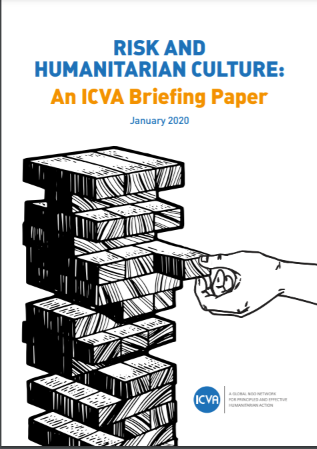This webinar was organised by ICVA and PHAP and it aimed at exploring the current state of risk management in the humanitarian sector. It introduced the concept of risk management and provided an overview of the particular challenges to apply this in humanitarian work.
-
Search -
Accessibility -
Members Login









